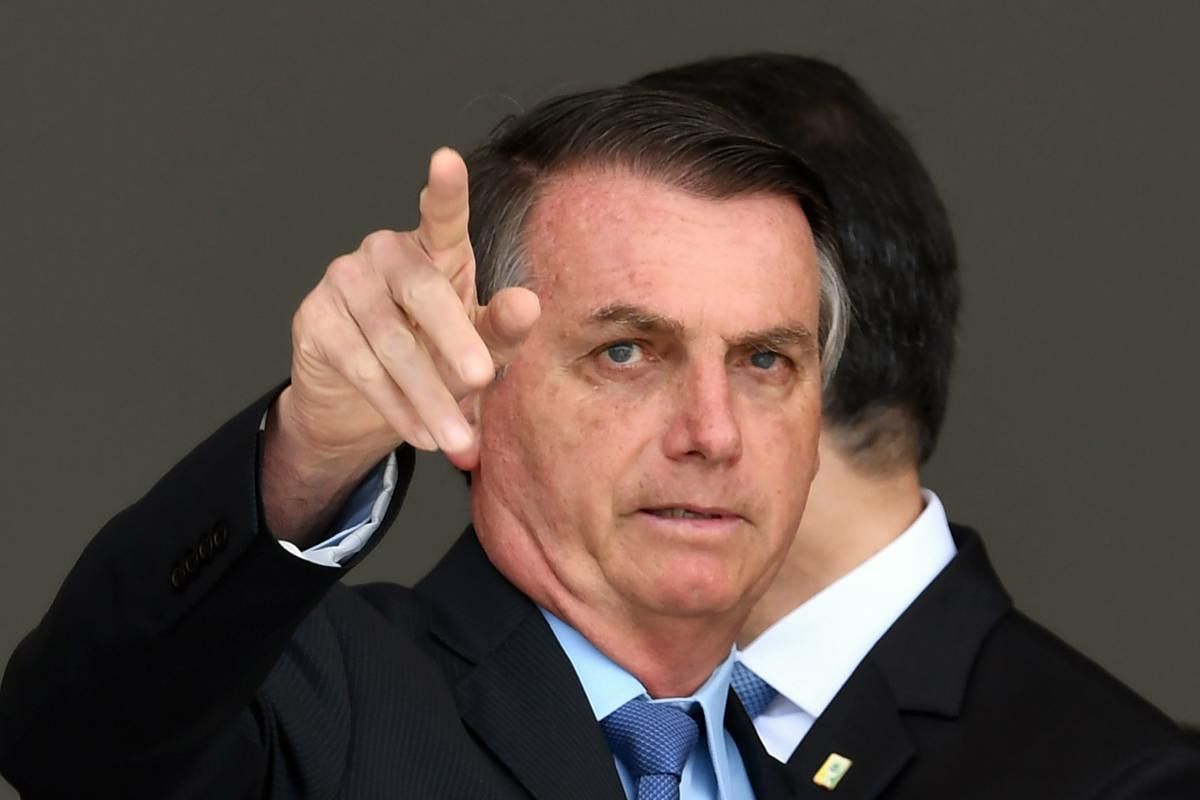
Brazil's negotiators already face a tough job at United Nations climate talks, given anger at President Jair Bolsonaro's stance on the Amazon, but it has become doubly difficult as they are in the dark on their own government's aims.
The right-wing leader has become a target for environmental lobbyists since Amazon's destruction surged to an 11-year high and terrible fires raged in August, with Bolsonaro's policies encouraging deforesters and cowing environmental enforcers.
Yet as if that was not enough, Brazil's technical negotiators at the United Nations talks in Spain on Monday are disconnected from political leaders and unclear on their goals, two people familiar with the matter said.
That means the negotiators could reach a deal that would be disavowed by government leaders. "Really what Brazil will do at the conference is anybody's guess," one of the sources told Reuters.
Adding to the confusion, Bolsonaro loyalist and Environment Minister Ricardo Salles has turned up in Madrid a week early to attend the full, two-week conference rather than just the second stage with fellow ministers from other nations.
"Only he knows what he's doing there," another source said.
As home to most of the vast Amazon rainforest that serves as a bulwark against global warming, Brazil is always a major player at environmental talks and has often been a broker between developed and developing nations.
But its widely-publicized backsliding on domestic protections has changed that, and Brazil's official delegation in Madrid no longer includes environmental lobby groups whose credentials it traditionally sponsored.
Once swelled by activists, Brazil's delegation now has government officials only, according to two Brazilian former attendees who are participating in this year's event but under different credentials.
FAR CRY FROM '92 RIO SUMMIT
At a technical level, Brazil's negotiating position remains unchanged, according to three people with knowledge of the matter. In particular, it will keep pressing for stricter accounting for carbon trading and wants emissions credits from an earlier climate accord to be honored under the Paris pact.
At the political level, there is uncertainty, though Salles has indicated he will be pushing to see how much Brazil will get of a planned $100 billion in annual environmental financing that developed countries promised developing countries by 2020.
Brazil's Environment Ministry and Bolsonaro's office did not respond to requests for comment about the Spain summit.
But at the U.N. General Assembly this year, Bolsonaro accused media of demonizing him and sensationalizing Amazon fires, saying Brazil had one of the best environmental records and used only 8 pct of its territory for agriculture.
However, he also outraged many by denying the Amazon was the "lungs of the world" and accusing non-governmental organizations of wanting to block development and "keep our indigenous people like cavemen."
Salles has taken the heat too for weakening Brazil's environmental enforcement agency, questioning official deforestation data and sparring with lobby groups.
The minister says Brazil has already met most of its Paris commitment to cut emissions by 37% in 2025 compared to 2005 levels. Environmental groups say while that may be true based on government statistics available only to 2015, recent changes have Brazil on track to miss that goal.
Researchers blame heightened Amazon destruction on a new wave of land speculators, farmers, and ranchers clearing land at a faster rate since Bolsonaro was elected last October.
It is a far cry from when Brazil hosted the 1992 Rio de Janeiro Earth Summit, laying the foundation for the landmark 2015 Paris Agreement seeking to limit average temperature rises to within 1.5-2 degrees Celsius above pre-industrial levels.
"They used to be seen as a leader," said Alden Meyer, policy director at the Union of Concerned Scientists advocacy group. "That obviously has changed."